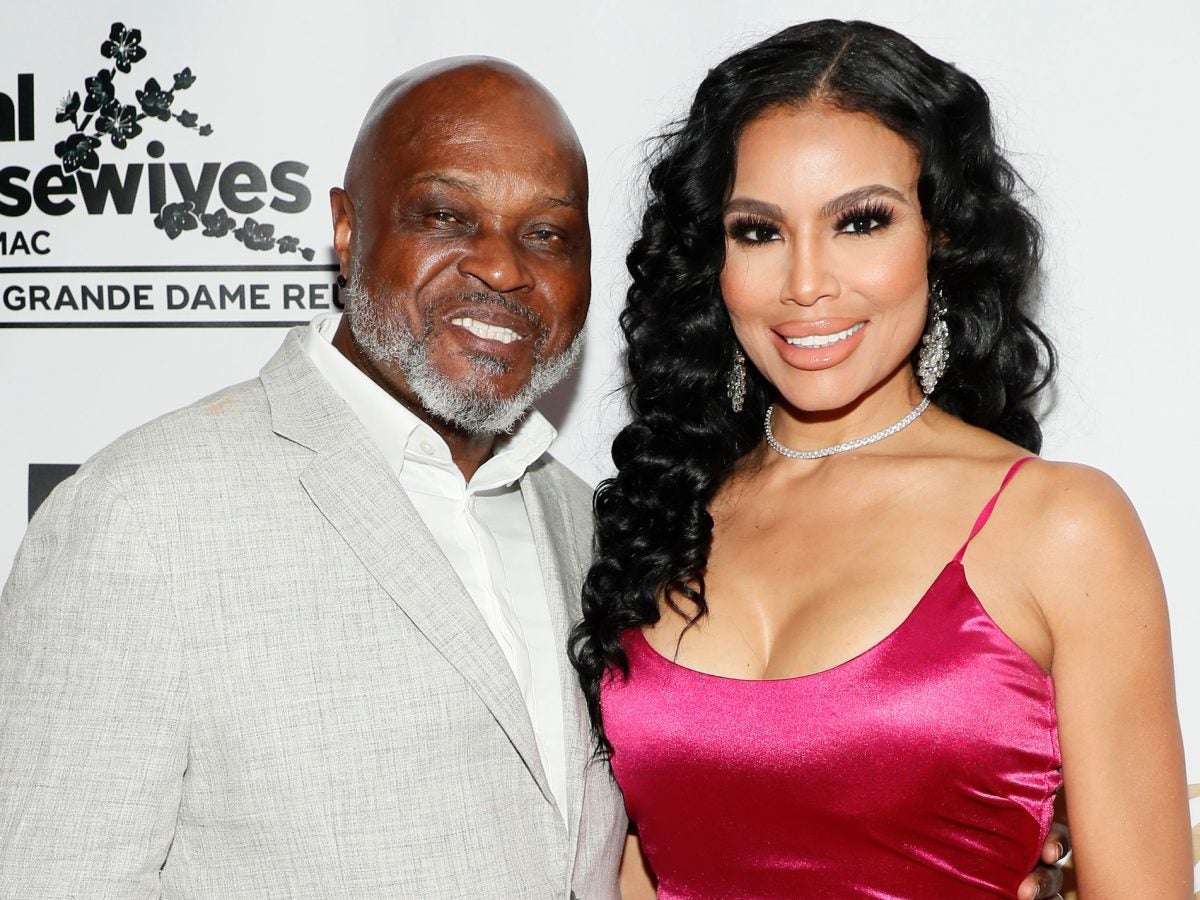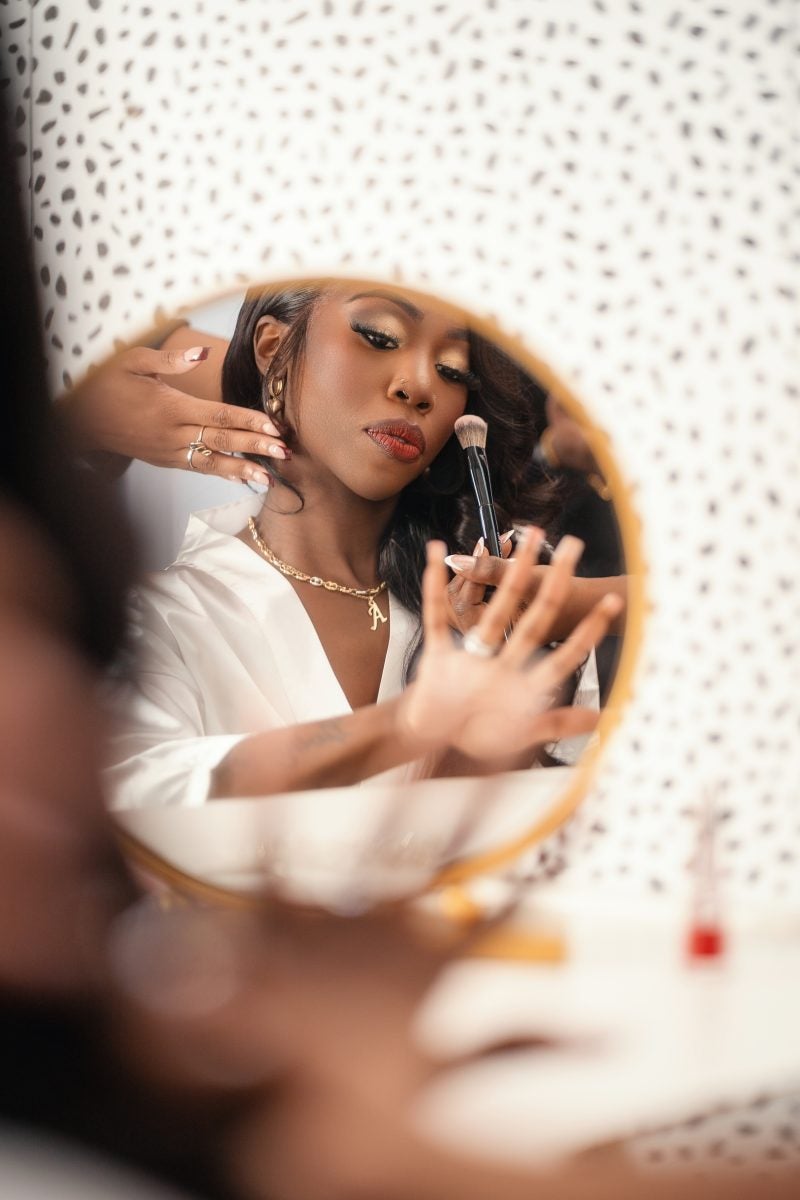
It’s been a busy week for the cast of Bravo’s Real Housewives of Potomac. In addition to baby news, there have been two confirmed exits (Candiace Dillard-Bassett and Robyn Dixon, with the latter making it known she was “fired”), rumors of a third to come, and plenty of rekindled debates about mean girl behavior and colorism.
Amid all that, an important conversation was had on part three of the Season 8 reunion between cast member Mia Thornton’s husband Gordon, or “G,” and reunion host/Real Housewives executive producer Andy Cohen. During the reunion, Gordon, who has seemingly made peace with the fact that his marriage to Mia is ending, revealed that a part of the reason they’re splitting is because of how he treated her while unknowingly dealing with bipolar I disorder, for which he was recently formally diagnosed.
“What I began to realize is that as early as my early 20s, I’ve had this. And I could remember [manic] episodes over the course of my life,” he shared. “Here’s the thing that’s really key to this: My manic [episodes] got worse over the years as I gained more control, more power, more money.” Gordon told Cohen that once he decided to do the work to deal with his issues, including taking medication, there were positive changes. That includes better interactions with Mia and an improved relationship with his family. “I understand my mental illness,” Gordon noted. “I understand how to control it now.”
Having Mia, though estranged (and she moved on with an old flame), support him has also had a great impact. “I’m forever gonna take care of Gordon,” she told Cohen.
Following that revelation, we reached out to a psychiatrist who specializes in bipolar disorder to learn more about bipolar I. As Leesha Ellis-Cox, M.D., shared, 2.3 million people in the U.S. have some form of bipolar disorder, and Black women and men are more likely not to be diagnosed for it. With that in mind, she offered insight on what makes bipolar I different from other forms of it, its signs and symptoms, ways to treat it, and advice for loved ones of those grappling with it on ways to support them in the effort to receive a diagnosis.
ESSENCE: When people think of bipolar disorder, that’s as far as most of us go. So, what marks bipolar I and makes it different from other classifications of it?
Leesha Ellis-Cox, M.D.: Mood disorders are common psychiatric illnesses that cause marked disruptions in an individual’s emotional state. There are several different mood disorders, but major depressive disorder and bipolar disorder are the two most common. What distinguishes bipolar disorder from major depressive disorder is the presence of mania. A manic episode is required to make the diagnosis of bipolar disorder. Symptoms of mania include abnormally elevated or irritable mood, grandiosity or exaggerated self-esteem, decreased need for sleep, being more talkative than usual, racing thoughts or flight of ideas, being easily distracted, excessive energy, an increase in goal-directed activities, and reckless or impulsive behaviors. These symptoms last at least a week or any duration if the symptoms lead to psychiatric hospitalization. Bipolar II includes a hypomanic episode that is less severe than mania, does not cause severe impairment in functioning, and does not result in hospitalization.
Can you elaborate on the signs of a Bipolar I manic episode?
An uptick in goal-directed activities can include spending several hours cleaning or starting multiple projects, and reckless or impulsive behaviors can show up as spending money earmarked for the rent or mortgage on clothing and shoes or promiscuous behavior or making unwise financial investments. Psychosis, the symptom of losing touch with reality characterized by auditory or visual hallucinations, paranoid delusions, or disorganized speech and behavior, may occur in mania but does not occur with hypomania.
How is it treated?
Bipolar disorder is a serious and persistent mental illness. According to a 2019 article by Peter Dome et al. in Medicina, the rate of suicide among individuals with bipolar disorder is 10 to 30 times higher than that of the general population; up to 20% of people with bipolar disorder will die by suicide, and 20% to 60% of individuals will attempt suicide at least once in their lifetime. Given such staggering statistics and the overall severity of bipolar disorder, the most effective treatment necessitates a combination of psychotropic medications and therapy.
The two most prescribed medication classes for bipolar disorder are mood stabilizers such as Lithium and Depakote and atypical antipsychotics like Lybalvi. Mood stabilizers target manic episodes and mixed episodes as well as depressive episodes for both acute and maintenance or long-term treatment. Antipsychotics treat manic, mixed, and depressive episodes but also reduce psychotic symptoms. Psychotherapy, or talk therapy, can help individuals with bipolar disorder learn healthy coping skills, help them understand their illness and identify triggers, improve communication to strengthen familial relationships, and can lead to lasting change and improved emotional well-being.
How can loved ones support someone who may be showing signs of bipolar I?
Humans are social creatures. We are not wired to do life in isolation. Relationships matter; healthy relationships infuse our lives with vibrancy, color, depth, and complexity. Social connectedness, the quality of having meaningful relationships that are nurturing and emotionally supportive, creates a profound sense of belonging and acceptance. For people living with mental illness, social connectedness is essential and serves as a protective factor that can reduce symptom severity. This is why having loved ones speak up and advocate for those showing signs of bipolar disorder is critical. Sometimes, a person may not recognize their symptoms or fail to realize the severity of their dysfunction, but a loved one can help them see the impact of their symptoms on their overall health and well-being. A loved one can help someone take the first step – make the phone call to schedule the appointment or accompany them to their initial appointment. And sometimes, all that someone needs is a loved one to simply sit with them, both literally and figuratively, and hold space – for disappointment, fear and angst, anger, overwhelm, or grief. We don’t always need a quick fix or the answers, but we need them to show up and be present. As Surgeon General Dr. Vivek Murthy said, “Social connection is as essential to humanity as food, water, or shelter.”




























